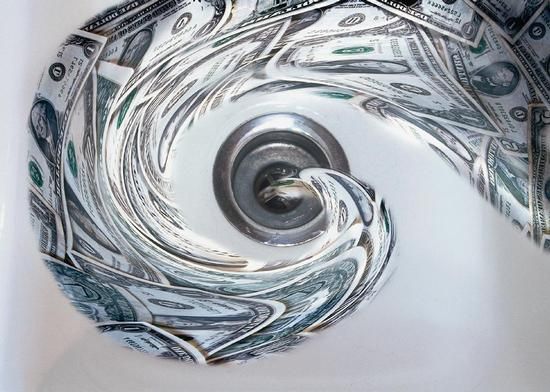I was reading this very good piece by Matthew Klein at FT Alphaville when I came across this line:
“The only kinds of money that reliably hold their value are the ones explicitly backed by a strong government*.”
This is an interesting point and one I don’t completely agree with. I go into this in excruciating detail in my book, but I’ll spare you the copy and paste job from that since it’s too long. Instead, here are some basic points on this topic which I think are important and put the above comment in the right perspective:
- Money is primarily a medium of exchange utilized to obtain goods and services.
- If the output of a society declines or is viewed as less valuable to its users then the money which is used as a medium of exchange will also be viewed as less valuable.
- Spending in excess of productive capacity will cause high inflation which can threaten the viability of money.
Okay, so, no government here at all. In theory, a totally private economy could utilize a form of “money” purely for the purpose of exchanging goods and services. There are plenty of historical examples of this throughout time, but the problem is that, as inherently social animals, the mythical “Robinson Crusoe” concept of money just doesn’t work out very cleanly. In other words, the existence of money impacts all of us who need it or want it.
If you live in the town next door and your town uses a different form of “money” than my town, but I want to buy the new long rifle that is only manufactured by a company in your town (who doesn’t accept my town’s money) then I have to obtain your town’s money. You can imagine how this relationship plays out over history as money becomes an increasingly social construct in a world that is increasingly interconnected. While money is an instrument of private exchange, it has become an instrument of public exchange due to the sheer complexity of the societies in which we live and their interconnectedness.
So, over time money becomes more than a private medium of exchange and becomes an instrument which can be used for public purpose like fighting wars and building roads. And so governments begin to define what the unit of account is (things like the Dollar, Euro, Yen, etc), but continue to allow private entities like banks to issue money. Unfortunately, we can’t trust everyone who uses money and because it is an instrument highly dependent on trust it can be helpful to have the government utilize its legal powers to enforce the use of money. And as our societies became more complex and required more reliable forms of money our governments have become more involved in defining what is money and how that money can be enforced through the payment system and the court system.
We shouldn’t put the cart before the horse though. While government plays an increasingly important role in the existence of money you’ll notice that a viable form of money is ALWAYS preceded by a valuable private sector which produces valuable goods and services. Almost everything the government does is after the fact in a supporting role. As I like to say, capitalism makes a degree of socialism sustainable. So yes, a government can certainly increase the viability of a form of money through things like the legal system, but we should never lose sight of the fact that money is only as good as the output it gives us access to. And while much of that output is created by governments these days the majority of domestic innovation and production is a private undertaking. Therefore, I would change Matthew’s comment to something more like this:
“The only kinds of money that reliably hold their value are the ones explicitly backed by strong private sector output with credible public institutions reinforcing that private sector strength.”
Mr. Roche is the Founder and Chief Investment Officer of Discipline Funds.Discipline Funds is a low fee financial advisory firm with a focus on helping people be more disciplined with their finances.
He is also the author of Pragmatic Capitalism: What Every Investor Needs to Understand About Money and Finance, Understanding the Modern Monetary System and Understanding Modern Portfolio Construction.


Comments are closed.